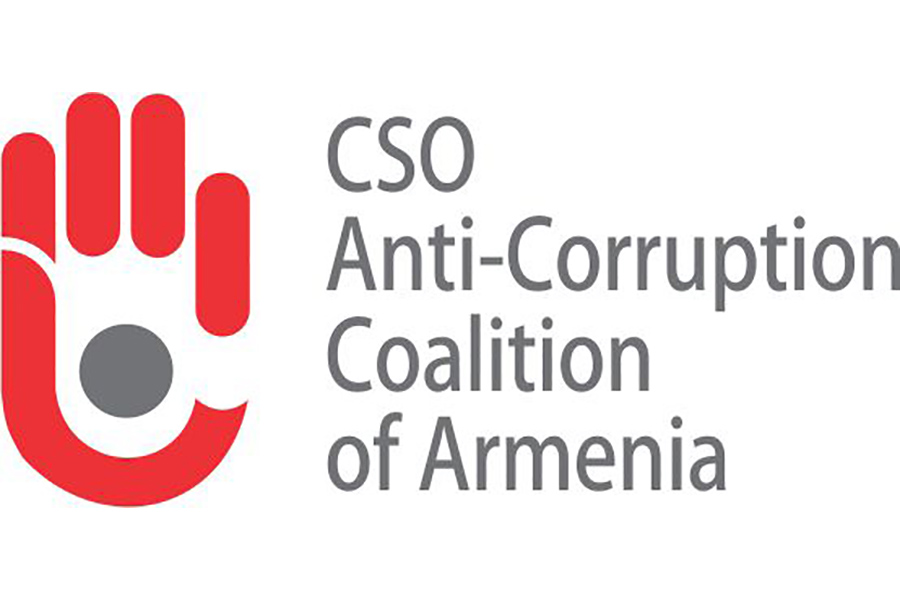
The Governing Board of the Anti-Corruption Coalition of Armenia has issued a statement which reads:
“Implementation of changes to redistribution of tax burden for national economy competitiveness and investment attractiveness as well as ongoing simplification of the privileged system of micro-enterprise taxation are announced the main goals of the Draft Package on Amendments and Addenda to the Tax Code of the Republic of Armenia (hereinafter referred to as “Draft”) related to
“Making Amendments and Addenda to the Tax Code of the Republic of Armenia” and a number of attached legislative initiatives.
Indeed, the drafts are taking a serious step towards promoting the development of micro-entrepreneurship, which is expressed in tax-exemption of businesses with a turnover of up to 24 million AMD, as well as unifying and simplifying various taxation systems. Simultaneously, the threshold of the turnover tax is raised to 115 million AMD.
Together with the above, amendments to direct tax rates are proposed, which, according to us, are not professionally justified, contradict both the international experience and the provisions proclaimed and enshrined in the RA Constitution.
Such a mild policy of direct tax rates naturally generates high expenses of the RA state budget, significantly reducing its revenues.
And thus the proposed drafts suggest accelerated changes in excise tax rates through their drastic increase.
Under this circumstance, the principle of income tax equalization is disputable from the point of view of social rights and social justice.
These changes will first of all affect positively upon 1,700 persons receiving high wages, among them MPs, government members, heads of other executive bodies, workers of the finance, credit and banking system, as well as IT professionals by increasing income they manage.
Meanwhile, these changes, according to our estimates, will cause serious inflationary pressure of 4-5% per year, which will result in decline of solvency of the individuals receiving lower wages: pensioners, and individuals receiving allowances, which in turn will reduce the gross consumption level.
The Governing Board of the CSO Anti-Corruption Coalition of Armenia considers that the proposal for Income Tax Equalization proposed by the Draft:
- will lead to indirect reduction in income managed by the low wage earners,
- in a social sense it will lead to the ratification of the Gin coefficient of law, which will contribute to the deepening of poverty,
- in a social sense, this will lead to fixing the Gin’s ratio by law, which will contribute to the deepening of poverty,
- in a social sense it will also lead to the emergence of the class of legally enriching individuals, but they will not be required to pay high taxes,
- at macro level it will lead to solvent demand, driven by it, as well as the reduction of gross consumption,
- at the macro level, it will also lead to the growth of gross accumulation, and the latter, as the practice shows, has not been and cannot yet be an internal source of investment and will lead to financial outflow from Armenia,
- will result in a negative fiscal effect, a significant reduction in state budget revenues,
- the emigration rates will increase,
- economic activity will decline,
- serious threats will emerge in the imperatives of defense capacity, sovereignty, and independence of the country.
Based on the aforesaid, the Governing Board of CSO Anti-Corruption Coalition of Armenia proposes:
- Revise the Income Tax Equalization option by setting internationally recognized progressive income taxation;
- Unconditionally apply the requirement provided by the RA Law “On Minimum Livelihood Basket and Minimum Livelihood Budget” of 16 March 2004, and define the “non-taxable threshold” in the amount of annual “Minimum livelihood basket and minimum livelihood budget” calculated in accordance with its provisions;
- In accordance with the economic content of excise tax complement the list of excise taxable goods with products that assume harmful consumption and goods characterized as luxury;
- Increase the tax rates of property that cost over 40 million AMD, setting rates corresponding to luxury tax;
- Increase the environmental utilization tax and environmental fee rates;
- Stop the practice of making continuous and sequential changes to the Tax Code;
- Define the objectives of the tax policy in a new situation after the velvet revolution and accordingly develop a new Tax Code;
- Provide the implementation of the amendments stipulated by the present Recommendation since 1 January, 2020.
14 June, 2019
Governing Board of CSO Anti-Corruption Coalition of Armenia”
